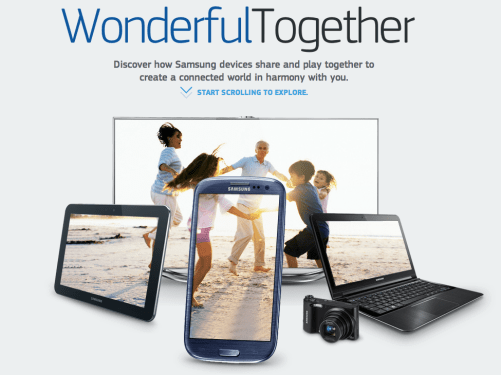Samsung Executive Confesses to Using Apple Devices, Describes Ecosystem as “Sticky”
The Unspoken Truth about Samsung’s Ecosystem
In an exclusive interview with MIT Technology Review, Young Sohn, Samsung’s Chief Strategy Officer, candidly admitted that Apple devices are incredibly hard to beat when it comes to a connected ecosystem. What’s even more surprising is that the man in charge of overseeing innovation across technologies at Samsung actually uses Macs, iPads, and iPhones as his personal devices.
A Confession from the Top
At work, Young Sohn confessed that he uses Samsung devices, but at home, it’s primarily Apple products for him. He explained this choice by saying, "At work I’m using Samsung devices; Apple at home, mainly because all of my systems and files are done that way. That’s sticky, you know?" This admission is a testament to the power of Apple’s ecosystem, which has become synonymous with seamless integration across various devices.
A Leader’s Perspective
Young Sohn is one of the few president-level executives based outside of Korea, and his job involves overseeing innovation in both the U.S. and Korea. As he delved deeper into the topic, it became clear that Samsung faces a significant challenge: despite being the top smartphone manufacturer globally, there’s still much work to be done.
The Need for an Amazing Ecosystem
Young Sohn emphasized that what Samsung truly needs is an "amazing ecosystem of connected devices." He explained that while the company provides more devices interacting with consumers than any other entity worldwide, their experiences are currently device-centric. This means they’re experienced on their own, without being part of a larger, interconnected network.
A Vision for Change
Young Sohn believes that Samsung can revolutionize its ecosystem by adopting an open architecture with its partners. He mentioned the company’s App Fridge and Smart TVs as examples of progress in this direction. However, the question remains: will it be enough to catch up with Apple’s well-developed platform?
Superior Hardware vs. Ecosystem
When asked about the strengths of Apple devices, Young Sohn countered that Samsung smartphones, such as the Galaxy lines, are actually superior hardware products. He attributed Apple’s success not to their products per se but rather to their proprietary ecosystem, which includes features like iCloud.
The Power of a Sticky Ecosystem
Young Sohn highlighted the benefits of having an interconnected system, where family members can access each other’s schedules and photos across different devices. This is exactly what makes Apple’s ecosystem so appealing: it’s sticky, yet closed-off to others. Young Sohn acknowledged this by saying, "I like that my family 6,000 miles away in Korea is able to see my schedule and see all of my contacts and photos. It is sticky, but it is a proprietary architecture."
A New Era for Samsung
Young Sohn began his new role in August and will be instrumental in cultivating two new R&D facilities as well as a new accelerator program. His goals are clear: to develop an ecosystem that rivals Apple’s.
The Ultimate Goal: A Connected Ecosystem
In conclusion, Young Sohn stated that the connected ecosystem is "really critical." He believes Samsung has the largest platform in the world, with devices and displays reaching millions of consumers worldwide. However, this is not enough; he wants to create a seamless experience where all these devices interact and work together seamlessly.
The Challenge Ahead
As Samsung continues to strive for an amazing ecosystem, they face stiff competition from Apple, which has perfected its interconnected system over the years. Young Sohn acknowledged this challenge by saying, "I think we have probably the largest platform in the world between the devices and displays and televisions we sell. We actually provide more devices that are interacting with consumers than anyone in the world. But if you think about our experiences, it’s device-centric. It’s experienced by itself. It’s not experienced in a connected way."
The Bottom Line
In the end, Young Sohn revealed his personal experience with both Samsung and Apple products, saying, "At work I’m using Samsung devices; Apple at home, mainly because all of my systems and files are done that way. That’s sticky, you know?" This candid admission underscores the importance of a connected ecosystem in today’s tech landscape.
The Future of Tech: Connected Devices
As we look to the future, it becomes clear that Young Sohn is not just talking about Samsung; he’s talking about the entire industry. He believes that with an open ecosystem and collaboration among partners, companies can create something truly revolutionary – a world where devices work together seamlessly.
The Importance of Ecosystem
In today’s tech landscape, ecosystem has become more than just a buzzword – it’s a necessity. Companies must focus on developing interconnected systems to stay ahead in the market. Young Sohn’s vision for Samsung and its future is one that emphasizes collaboration and innovation.
A New Era for Tech
As we move forward into this new era of tech, where devices will increasingly be interconnected, companies must prioritize ecosystem development. With an open architecture, they can create something truly remarkable – a world where technology works in harmony with our lives.
The Final Word: A Connected Future
Young Sohn’s words serve as a reminder that the future of tech is not just about individual products but about how they work together to create seamless experiences. As he said, "I think we have probably the largest platform in the world between the devices and displays and televisions we sell." The question now remains: will Samsung be able to create an ecosystem as beautiful as it is functional?

